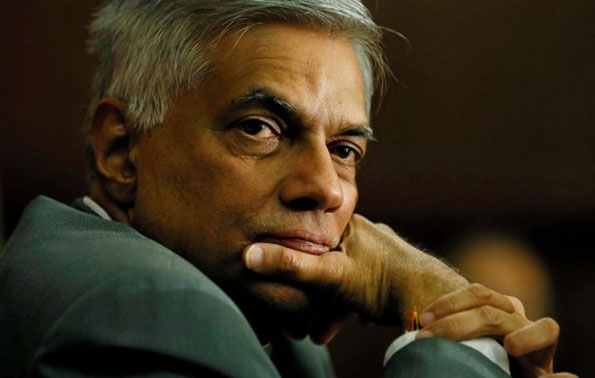Ranil trying to follow Mahathir Mohamad

The present regime, in its present form was able to start up the economy which was at a standstill and will end up stabilizing it by showing budget surpluses by 2020, Prime Minister Ranil Wickremesinghe said recently. “We did not take over a stable Government but an economy which was at a standstill just like a power station with broken generators. The generator of the power station, which is called the economy, is development.
This power station was at a standstill when we took over the Government as the country was in a debt trap and as there were no investors. However, we have managed to fuel this power plant with investments and by settling the debts. We will complete what we started and will end up showing a budget surplus by 2020,” the Prime Minister said. Ranil is perhaps trying to follow the example set by Mahathir Mohamad of Malaysia.
In Malaysia too there were nationality conflicts, basically between Malays and Chinese. The Constitution grants freedom of religion and makes Malaysia an officially secular State, while establishing Islam as the “religion of the Federation”. According to the Population and Housing Census 2010 figures, nationality and religious beliefs correlate highly. Approximately 61.3% of the population practise Islam, 19.8% practise Buddhism, 9.2% Christianity, 6.3% Hinduism and 1.3% practise Confucianism, Taoism and other traditional Chinese religions. 0.7% declared no religion and the remaining 1.4% practised other religions or did not provide any information. Sunni Islam of Shafi’i school of jurisprudence is the dominant branch of Islam in Malaysia, while 18% are non-denominational Muslims.
This strife culminated in the 13 May race riots in 1969. After the riots, the controversial New Economic Policy was launched by Prime Minister Tun Abdul Razak, trying to increase the share of the economy held by the bumiputra. However, under Prime Minister Mahathir Mohamad this nationality problem was controlled by expanding the power of the federation and secular nature of the Constitution. After the conclusion of this process there was a period of rapid economic growth and urbanization beginning in the 1980s. The economy shifted from being agricultural based to one based more on manufacturing and industry. Numerous mega-projects were completed, such as the Petronas Towers, the North–South Expressway, the Multimedia Super Corridor, and the new federal administrative capital of Putrajaya. However, in the late 1990s the Asian financial crisis almost caused the collapse of the currency and the stock and property markets. Federation brought heightened tensions including a conflict with Indonesia as well as continuous conflicts against the Communists in Borneo and the Malayan Peninsula.
Hence, if Ranil wants to follow the Malaysian model he has to expedite the work on the Constituent Council and create a united nation in Sri Lanka. Malaysians improved rapidly the basic knowledge of English and empowered the people. This should be done in Sri Lanka, too, with an islandwide campaign. Ranil said the previous Government borrowed funds and constructed a port without ships and an airport without planes. “This is like mixing water with kerosene. However, when we took over we managed to show an excess in primary accounts by making difficult decisions such as increasing VAT,” he said. In addition his cooperation with trade unions has won the support of the Western world workers’ movement. On the other hand countries such as China, India and Japan have come to assist Sri Lanka after the Government signed an agreement with the International Monetary Fund (IMF). All these countries will not help Sri Lanka if the agreement with the IMF is abolished.
(Source: Ceylon Today – Dr. Vickramabahu Karunaratne)
Latest Headlines in Sri Lanka
- Three arrested over Rs. 17 Million Lanka Sathosa garlic scam January 30, 2026
- Businessman arrested over Rs. 30 Million money laundering case linked to former minister January 30, 2026
- Six police officers arrested over alleged priest assault granted bail January 29, 2026
- Sri Lanka moves toward ‘Dream School’ system for all grades January 29, 2026
- ASP Rohan Olugala appointed Director of Walana Anti Corruption Unit January 29, 2026


